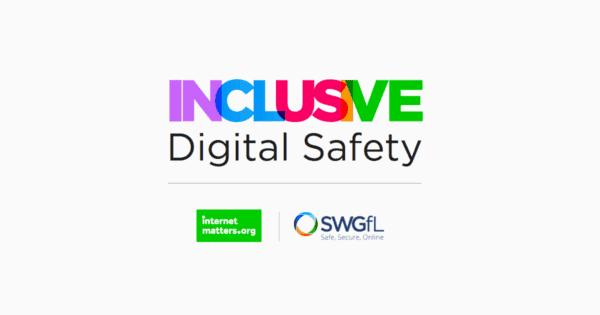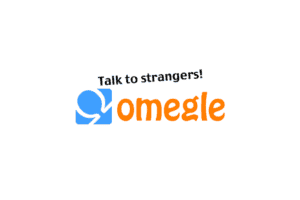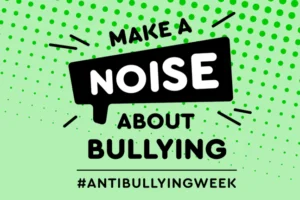- The organisations have teamed up to create the Inclusive Digital Safety hub, launched today by the Minister for Safeguarding, Victoria Atkins, MP
- The digital platform will equip and empower professionals, parents and carers to have meaningful conversations about online life with the children in their care
- The targeted resources and guidance have been specifically designed for adults supporting children with SEND, in minority groups, or those who have experienced being in care
- The hub will notably include a bespoke version of SWGfL’s ‘So You Got Naked Online…’ resource for SEND children and an online forum for professionals
A digital service designed to help society’s most vulnerable children and young people who are disproportionally at greater risk of online harm has been launched today by the Minister for Safeguarding, Victoria Atkins, MP.
The Inclusive Digital Safety platform is the first of its kind and was created jointly by Internet Matters and SWGfL to provide dedicated resources, tools and insights for parents, carers and educational professionals who are supporting vulnerable children in the UK.
The educational online hub will house both created and curated content for parents, carers and professionals and has been specifically designed for children with special educational needs and/or disability (SEND), those currently or previously in care, and children in minority groups, in particular LGBTQ+.
The hub will also house an online forum, initially moderated, that will enable professionals to share their situation and obtain feedback and comments from their peers. It will initially be supported by SWGfL specialists to ensure any questions are responded to when it’s first launched.
The impact of Covid-19 has meant both Internet Matters and SWGfL have experienced a huge increase in demand, with greater numbers of both parents and professionals seeking resources and support*.
Of the calls that the UK Safer Internet Centre Helpline manages from those working with SEND children, a significant proportion relates to sexting incidents.
In response, SWGfL has created a bespoke version of its ‘So You Got Naked Online…’ resource specifically for SEND children for the hub. The aim is to provide accessible information to help support young people with particular vulnerabilities in the event that they have shared intimate images.
And, with the risk of schools going into local lockdowns, there has never been a more important time to provide professionals surrounding vulnerable young people with evidence-based, usable advice and insight.
It comes following a report** by Internet Matters that revealed it is possible to predict online risks that different groups of vulnerable children may face online. This includes pressure to send intimate images, greater experience of cyberbullying and cyber scams, as well as repeated exposure to content promoting self-harm, anorexia and suicide.
More than two million children are considered to be the most vulnerable in England – including those with physical or mental health needs. These children face becoming ‘lost in digital space’ if the right support is not given, according to the Vulnerable Children in a Digital World’ report written by Adrienne Katz and published by Internet Matters in 2019.
Minister for Safeguarding, Victoria Atkins, MP, said: “We want the UK to be the safest place in the world to go online, which means it has to be the safest place for everybody.
“It’s important every child can enjoy the internet safely and having adults understand what risks different children may encounter is the first step to ensuring risks do not turn into harms.
“I’m delighted to launch this innovative hub and would encourage parents and professionals working with children to explore the advice on the Inclusive Digital Safety Hub.”
David Wright, Director of UK Safer Internet Centre, said: “The internet has transformed how young people learn, socialise and communicate – but sadly it also brings new dangers, such as online grooming, cyberbullying and peer pressure. These risks are even more prevalent for vulnerable children.
“We know offline vulnerabilities allow us to predict the online risks children face. Prediction allows for intervention and prevention, but only if responsible adults have the tools to do this.
“This is why we’ve partnered with Internet Matters. We wanted to create the first-ever online hub to provide adults with the digital education skills to intervene, preventing risk from becoming harmful to vulnerable children.”
Carolyn Bunting, CEO of Internet Matters, said: “We know that the single most important factor in keeping children and young people safe online is for them to have conversations with the trusted adults around them.
“This is even more important for young people most at risk of harm, so equipping the rainbow of adults around vulnerable young people with the evidence, resources and tools they need to have meaningful conversations is a vital part of enabling all young people to enjoy the benefits of connected technology.
“Having those conversations early enough can help lower the risks of serious online harms later on. This way, we can help ensure that every child can benefit from connected technology safely.
I’m delighted that in partnership with SWGfL we’ve been able to offer this hub to parents and professionals”
For more information and resources on keeping vulnerable children and young people safe online, visit the hub: www.internetmatters.org/inclusive-digital-safety.
NOTES FOR EDITORS
*Data from Internet Matters parental tracker from May 2020 indicates that parents of vulnerable young people report they experiencing significantly more harm than non-vulnerable children in the lockdown. Whilst time online has increased by 20% for vulnerable CYP, contact with strangers is up 40%, sexting is up 25% and gambling a huge 83%.
**The Internet Matters report ‘Vulnerable Children in a Digital World’ (February 2019).
About Internet Matters
Internet Matters (internetmatters.org) is a not-for-profit, industry-funded members body that helps families stay safe online, providing resources for parents, carers and educational professionals. It was established in 2014 by BT, Sky, TalkTalk and Virgin Media and its members include BBC, Google, Samsung, Facebook, Huawei, ByteDance, Supercell and ESET. It is a member of the Executive Board of UKCIS (UK Council for Internet Safety), where it leads the working group for vulnerable users and was a member of The Royal Foundation Taskforce on the Prevention of Cyberbullying, founded by the Duke of Cambridge. It works with partners from across the industry, government and third sector to raise awareness and provide advice on the issues affecting children in the digital age, including cyberbullying, screen time, digital resilience, extreme content, privacy and exploitation.
About SWGfL
SWGfL, one part of the UK Safer Internet Centre, are a charity focussed on ensuring children can enjoy technology free from harm. They deliver several key programmes that support professionals working with children and young people including POSH, the Professionals Online Safety Helpline, and expert online safety training. SWGfL created and maintain the 360-degree safe self-review tool for schools and also offer Whisper, an anonymous reporting tool for schools. They also operate the Report Harmful Content platform where anyone over the age of 13 can receive support in removing eight different types of harmful content online can escalate reports on social media that have not been dealt with effectively.
Media Contacts for Internet Matters
Katie Louden
[email protected]
Mobile: 07850428214
Media Contacts for SWGfL
Andy Robinson
[email protected]
Mobile: 07826852188





